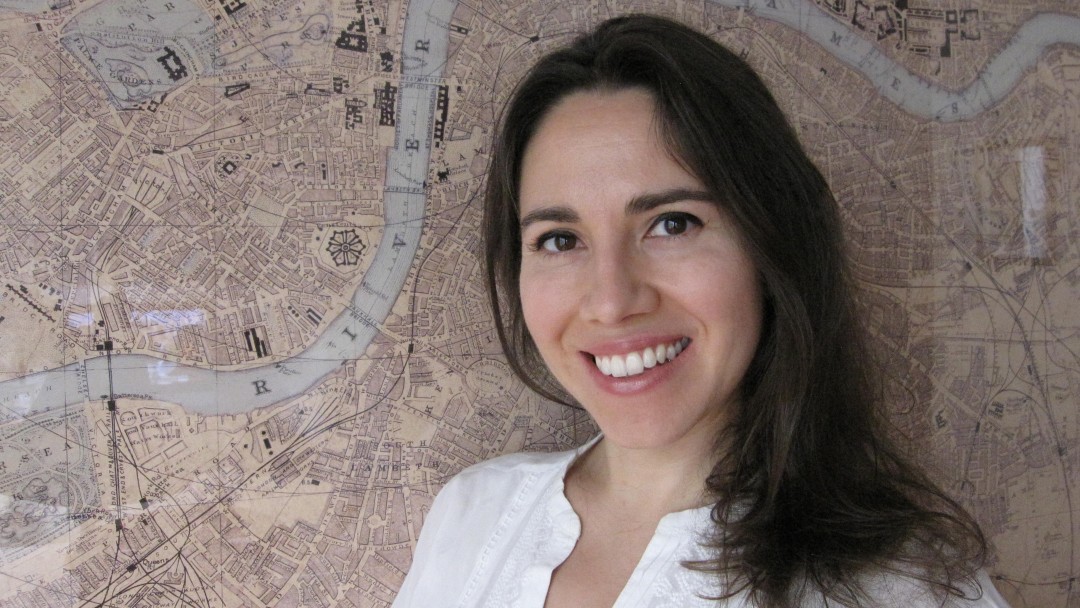News from 2017-03-14 / KfW Development Bank
"Insurance is a legitimate instrument as part of response instruments"
Joanna Syroka talks about ARC and new fields for insurance in development cooperation
Has the international community by now understood the importance of insurance?
I think it has. And I think 2015, culminating with the Climate Meeting in Paris in December, was an inflection point. The G7 and German leadership was critical there. It really wasn´t just talk, since Paris I see a lot of discussion at the working level with pipelines of actual transactions being developed. Even on the humanitarian side, insurance is now a legitimate instrument to be considered as part of response instruments. It´s still a new and innovative instrument but it´s thought about and considered now. That´s considerable progress, because it wasn´t like that ten even five years ago.
How was it back then?
While governments paid for some of the direct responses to natural disasters, the donors traditionally took care for the majority of costs by supporting international humanitarian assistance. But responses were in general late and slow and so the rest was borne by the affected people themselves, at a detriment to their resilience and livelihoods. With the introduction of insurance instruments it’s the first time that governments are fully realizing the costs of these disasters. But they are also realizing that by paying premiums, and by facilitating timely, local action through insurance payouts, they are minimizing that risk and its consequences financially. This is a big step foward.
ARC has some years of experience now. What have you achieved during that time?
We have contributed to this paradigm shift. Being financially and operationally prepared to deal with disasters like droughts and floods beforehand is now mainstreamed thinking.
What is the greatest challenge for ARC at the moment? Maybe that some countries consider insurance a luxury product, something they can do without when times get rough financially?
Insurance has a cost, there is no doubt about that. You have to pay a premium upfront. Regularly renewing that premium or even accessing the ARC insurance pool for the first time is a challenge for some of our countries indeed. That´s why premium financing is something we are actively working on. We need to find ways of helping our member countries access support for these premiums. At the same time they have to embed ARC’s insurance and operational processes into their sovereign budgets and risk management systems.
Is that an issue for donors as well?
Yes, it´s a question of who will help finance that premium in the interim. The countries themselves have to take care of premium payments in the long run and that will significantly reduce humanitarian costs for donors in the future. The challenge is to find a solution for the meantime. Donors will be critical here.
How do you tackle that problem? Do you actually moderate between countries and donors?
Before we didn´t, unless support was requested by a government, but we realized that premium payment is a fundamental question for ARC and its growth targets. We see it as a priority now to put forward some kind of premium financing mechanism for our countries to get them onto this road of proactive risk management and to create a sustainable, independent insurance pool for the long-term.
Any other challenges?
Prior to becoming a member of the ARC insurance pool countries have a lot of work to do, technical work, contingency planning and so forth. It usually takes 18 months of preliminary work before the first premium payment is due. All this takes quite a bit of time and resources on our side and on the country’s side. Many countries also need support for that investment.
Are you looking into transferring the climate risks to other types of risks?
Health is the area we are looking into right now. We are beginning a research and development phase, with the support of the Rockefeller Foundation, to design an outbreak and epidemic insurance product. We were given that mandate by our member states. ARC is more than just an insurance pool: It provides a powerful political and technical architecture for our members. We bring together three elements: early warning, contingency planning and insurance. These are valid elements for outbreaks and epidemics as well.
Any other fields you consider expanding to?
More weather risks in general. So far we only cover droughts, but we are launching insurance schemes for other weather risks like cyclones and floods soon. And there are a few other perils that our countries have requested us to look into in the future, bushfires and locusts for example.
Is there a limit for insurance in development cooperation?
Insurance can only do so much. The risks our countries and people face are massive. A lot of them, however, stem from non-insurable and known factors. Insurance cannot pay for and meaningfully tackle things like chronic poverty and chronic food insecurity. These issues need predictable and sustained investment, they cannot be insured away. However insurance can protect those investments once they are made.
How do you view KfW´s and Germany´s role in insurance?
They are playing a really important role in promoting insurance and for ARC. Germany is among the leading countries in this field. The support of KfW on behalf of BMZ was essential to establish ARC successfully. Germany, particularly through BMZ, is a major driving force of the initiative on Climate Risk Insurance "InsuResilience", that was adopted at the G7 Summit in Elmau and has helped mainstream insurance into the global development agenda.
Interview conducted by Friederike Bauer.


Share page
To share the content of this page with your network, click on one of the icons below.
Note on data protection: When you share content, your personal data is transferred to the selected network.
Data protection
Alternatively, you can also copy the short link: https://www.kfw-entwicklungsbank.de/s/enzBWrMC.BgnA
Copy link Link copied